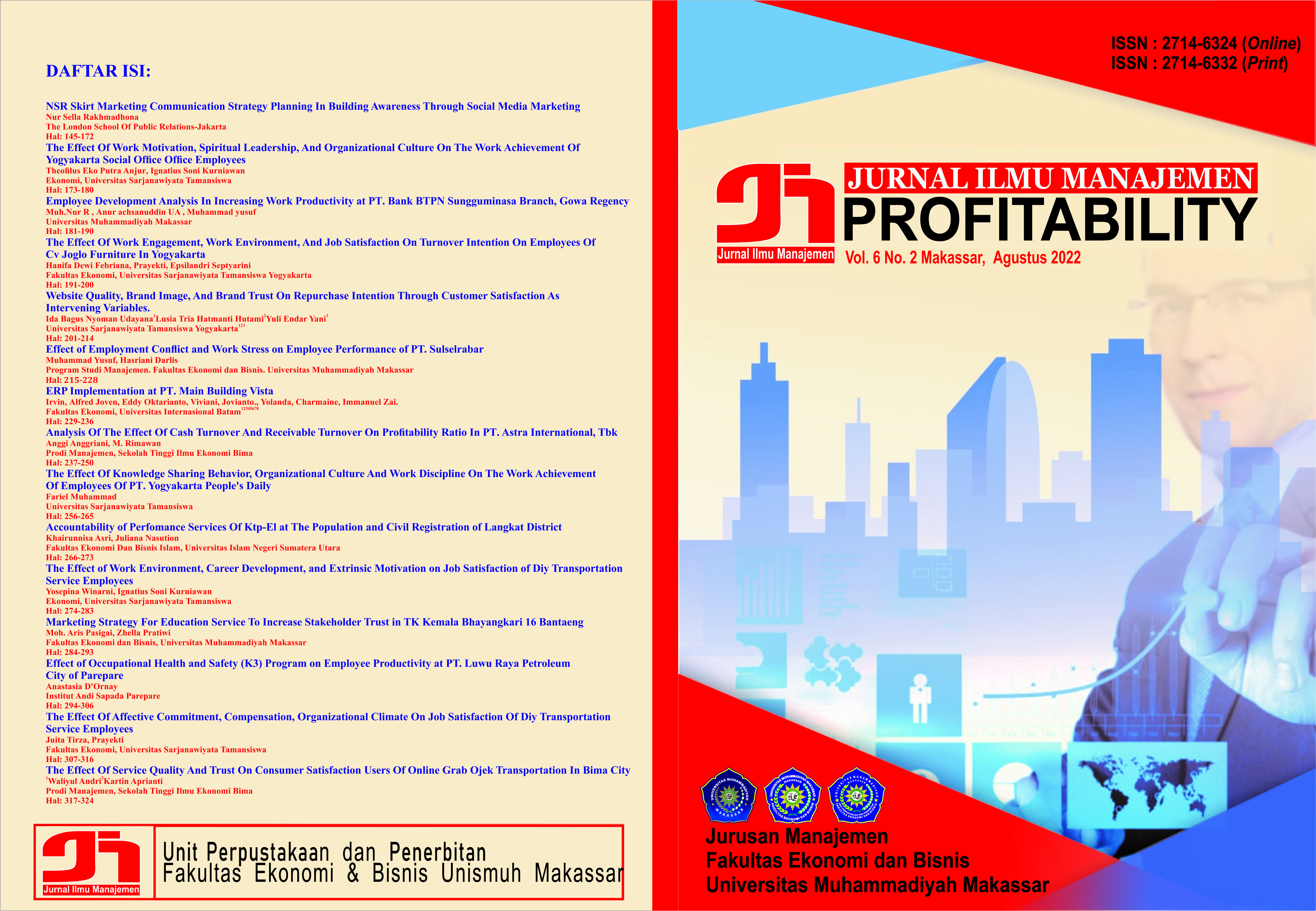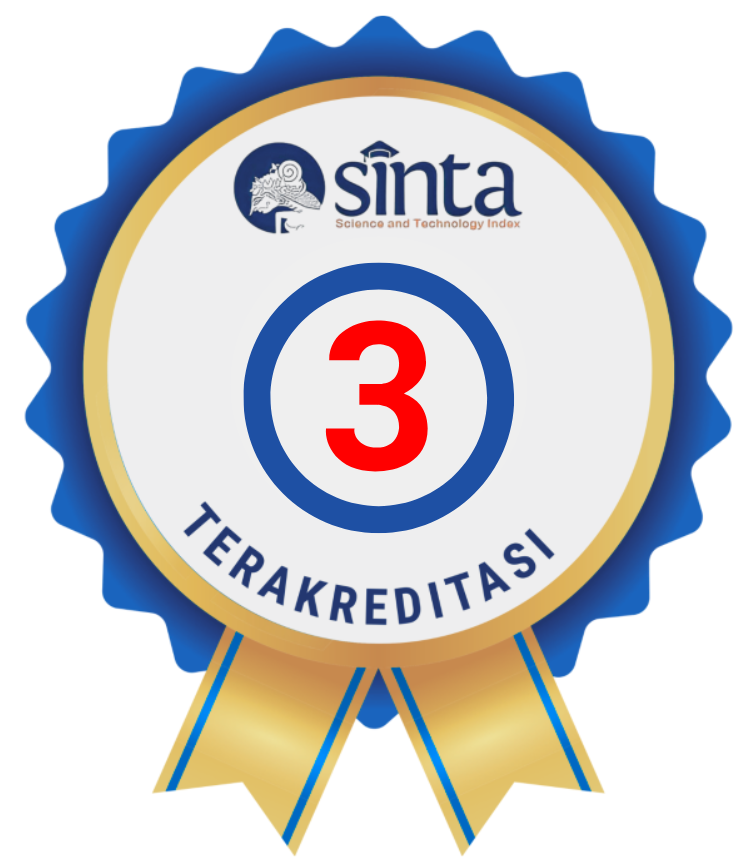Sharia Economic Da'wah Concepts and Strategies Based on Surah As-Shaff (Verses 1-4)
DOI: https://doi.org/10.26618/profitability.v8i2.15428
Da'wah Strategy, As Shaf, Sharia Economics
Abstract
Islamic economic da'wah is increasingly important in the current era of globalization, where fair, moral, and economic values in accordance with Islamic principles are increasingly sought after. Based on surah As-Saf verses 1-4 in the Qur'an, understanding the concepts and strategies of Islamic economic da'wah is very important. These verses emphasize the concept of tawhid, which is the recognition of the oneness of Allah and servitude to Him. This concept is the basis of Islamic economic practice, where every economic action begins and ends with the realization that we obey Allah swt. These verses also remind how important the relationship between words and actions is, suggesting that the values and principles of Islamic economics should be applied in everyday life. This research is a descriptive qualitative research using library research method. The results of this study indicate that the concept and strategy of Islamic economic da'wah based on surah As Shaf verses 1-4 include understanding that everything in the universe belongs to Allah, consistency between words and actions, integrity and morality in business, as well as cooperation and coordination in achieving the same goal.References
Abdullah bin Muhammad bin Abdurahman bin Ishaq Al Sheikh. *Tafsir Ibnu Katsir* Jilid 8. Jakarta: Pustaka Imam Syafi’i, 2005.
Afrizal Nur. *Tafsir Tematik Surah As Shaff*. Yogyakarta: Suara Muhammadiyah, 2022.
Ali Geno Berutu. *Pemikiran Hukum Islam Modern*. Salatiga: Lembaga Penelitian dan Pengabdian kepada Masyarakat (LP2M) IAIN Salatiga, 2021.
Elida Elfi Barus. "Tauhid Sebagai Fundamental Filsafah Ekonomi Islam." *Jurnal Perspektif Ekonomi Darussalam*, Volume 2 Nomor 1, Maret 2016.
Ghony M. Djunaidi dan Fauzan Almanshur. *Metode Penelitian Kualitatif*. Jogjakarta: Ar Ruzz Media, 2012.
Hemawati. "Pendidikan Akhlak Dalam Surat As Shaf." *Wahana Inovasi*, Volume 7 No.1, Jan-Juni 2018.
Ifdlolul Maghfur. "Membangun Ekonomi Dengan Prinsip Tauhid." *Jurnal MALIA*, Volume 7, Nomor 2, Juni 2016.
Kementerian Agama. *Alquran Al Madrasah Duo Latin*. Bandung: Al Qosbah Karya Indonesia, 2023.
Ma'mun Efendi Nur. "Dakwah Sosial Ekonomi Dalam Pandangan Dawam Rahardjo." *Jurnal Ilmu Dakwah*, Vol. 37, No.1, Januari – Juni 2017.
Marsuni, N. S., & Insirat, M. N. "Tax Strategy to Encourage MSME Growth: Analysis of Effectiveness and Constraints."
Marsuni, N. S., & Insirat, M. N. "Analysis of the Effect of Tax Policy and Inflation on Economic Growth: A Review of Indonesian Literature."
Marsuni, N. S., Said, D., & Indrijawati, A. (2022). "Triple Button Line Implementation Through Corporate Social Responsibility Program at PT. Semen Tonasa." *Economos: Jurnal Ekonomi dan Bisnis*, 5(2), 107-113.
Mawardi, M. K., Iqbal, M., Astuti, E. S., Alfisyahr, R., & Mappatompo, A. (2024). "Determinants of Green Trust on Repurchase Intentions: A Survey of Quick Service Restaurants in Indonesia." *Cogent Business & Management*, 11(1), 2318806.
Mestika Zed. *Metode Penelitian Kepustakaan*. Jakarta: Yayasan Pustaka Obor Indonesia, 2014.
Muhammad Bin Shaleh Al-‘Utsaimin. *Prinsip-Prinsip Dasar Keimanan*. Indonesia, 2007.
Muri Yusuf. *Metode Penelitian Kuantitatif, Kualitatif, dan Penelitian Gabungan*. Cet. V; Jakarta: Prenadamedia, 2019.
Nursapia Harahap. “Penelitian Kepustakaan.” *Jurnal Iqra’*, 8, no. 1, Mei 2014.
M. Quraish Shihab. *Tafsir Al Mishbah Pesan, Kesan dan Keserasian dalam Al Qur’an* Volume 14. Tangerang Selatan: Lentera Hati, 2001.
Downloads
Published
Issue
Section
License
Authors who publish with Jurnal Ilmu Manajemen Profitability agree to the following terms:
Copyright of the articles remains with the authors.
Authors grant the journal the right of first publication with the work simultaneously licensed under a Creative Commons Attribution-NonCommercial 4.0 International License (CC BY-NC 4.0). This license allows others to:
Share (copy and redistribute the material in any medium or format)
Adapt (remix, transform, and build upon the material)
as long as they give appropriate credit to the original author(s) and source, provide a link to the license, and indicate if changes were made. Non-commercial use only.
Authors are permitted to:
Distribute their published work (e.g., post it to an institutional repository or publish it in a book), with an acknowledgment of its initial publication in this journal.
Enter into separate, additional contractual arrangements for the non-exclusive distribution of the journal’s published version of the work (e.g., post it to a class website or institutional archive).
For permissions to use the content published in this journal beyond the scope of the license (e.g., commercial purposes), please contact the editorial office via the journal email.
License Details:
This journal is licensed under a Creative Commons Attribution-NonCommercial 4.0 International License (CC BY-NC 4.0).












